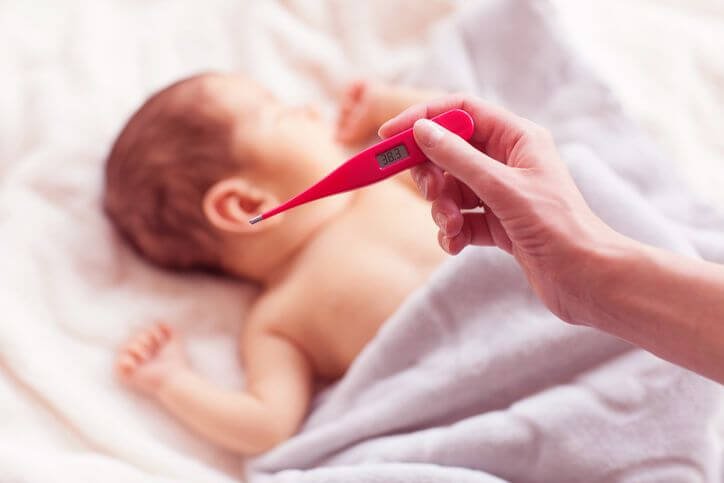Take care of your baby’s health and control that its temperature does not exceed natural levels. Discover how to detect fever in the little ones, as well as what is the appropriate treatment.
Low temperatures are one of the factors that in winter lead to the appearance of flu and colds . As a consequence, many people have high fevers , which although it is not a disease as such, it is a symptom that indicates that our defense mechanisms are acting against invading agents that can cause damage to the body. That said, it sounds overly scientific, but this increase in body temperature changes when it comes to babies and children. And it is that, in these cases it is necessary to pay much more attention since the symptoms of fever in the smallest are of greater risk and may require adapted treatment and even hospitalization.
Without panic, the most important thing is to be able to take the temperature accurately and quickly to babies and children in order to act accordingly. For this, it is necessary to take into account the temperature variations that exist depending on the place of measurement: mouth, armpit, ear, forehead or rectum. Thus the normal temperature range is as follows according to the measurement site :
- Armpit from 35.9 ° C to 37.0 ° C
- Mouth from 35.9 ° C to 37.0 ° C
- Straight from 36.3 ° C to 37.5 ° C
- Ear from 35.8 ° C to 36.9 ° C
- Front from 35.8 ° C to 36.9 ° C
When is fever considered?
Body temperature fluctuates naturally throughout the day. For example, it is a little higher in the afternoon than in the morning. So normal body temperature should be considered as an interval. Fever from 38.5 ° C is considered . Based on rectal temperature measurements, the intervals can be classified as follows:
- Normal body temperature: from 36.3 ° C to 37.5 ° C.
- Increased body temperature: from 37.6 ° C to 38.4 ° C.
- Fever: from 38.5 ° C to 38.9 ° C.
- High fever: above 39 ° C.
What to do if the baby has a fever?
The most important thing to treat a child’s fever is to always pay special attention to him that contributes to his rest and makes him feel protected by his parents, offering him something to drink every 30 minutes and checking the state of his temperature at regular intervals.
From there, if a body temperature of between 38ºC and 38.9ºC is reached , it is also advisable to offer only light and digestive food and, if necessary, give fever-reducing medications as long as a pediatrician or Sanitary professional.
Finally, in case of high fever , with a body temperature that reaches 39ºC or more, warm sponge baths are also recommended to reduce the child’s fever and avoid excess clothing and blankets that can cause a higher temperature rise.
